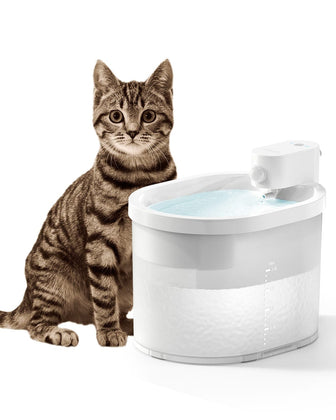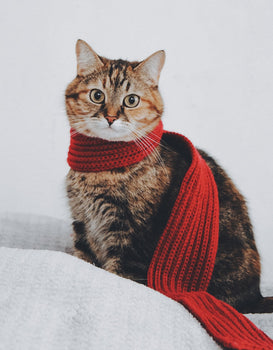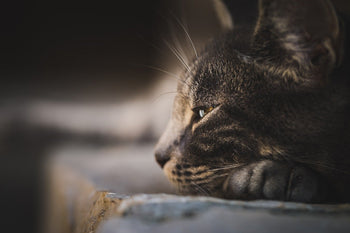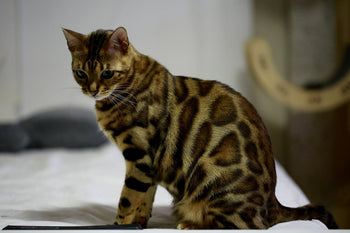Indoor cats lead a much different lifestyle than their outdoor counterparts. They don't have to hunt for their food or fend off predators, which means they tend to be less active and have different nutritional needs.
As a result, choosing the right cat food for indoor cats is crucial to their overall health and well-being.
When it comes to indoor cat food, there are a lot of options on the market. With so many choices, it can be overwhelming to figure out which one is the best for your feline friend.
Factors such as age, weight, and health conditions should be taken into consideration when selecting cat food. In addition, there are certain ingredients that should be avoided, such as fillers and artificial preservatives.
In this article, we will explore the nutritional needs of indoor cats and the factors to consider when choosing cat food. We will also provide recommendations for the top cat food brands for indoor cats based on expert reviews and customer feedback.
By the end of this article, you will have a better understanding of what to look for in indoor cat food and which brands are worth considering.
Best Cat Food for Indoor Cats: A Comprehensive Guide

Key Takeaways
Indoor cats have different nutritional needs than outdoor cats and require a specialized diet.
When choosing cat food for indoor cats, it's important to consider factors such as age, weight, and health conditions, as well as avoid certain ingredients.
The top cat food brands for indoor cats include [insert recommendations here].
Nutritional Needs of Indoor Cats
Indoor cats have different nutritional needs than outdoor cats. Since they are not as active as outdoor cats, they require a diet that is lower in calories and fat.
Indoor cats also need more fiber to help prevent hairballs and maintain healthy digestion.
Dietary Requirements Comparison
Compared to outdoor cats, indoor cats require a diet that is lower in fat and calories. They also need more fiber, which can be found in many cat foods.
Indoor cats may also require more protein to maintain muscle mass, since they are not as active as outdoor cats.
Balanced Diet for Obesity Prevention
Indoor cats are at a higher risk of becoming overweight or obese, which can lead to health problems such as diabetes, arthritis, and heart disease.
To prevent obesity, it is important to feed indoor cats a balanced diet that is lower in calories and fat.
This can be achieved by feeding them a high-quality cat food that is specifically formulated for indoor cats.
Protein, Fatty Acids, and Vitamins
Protein is an essential nutrient for cats, and indoor cats may require more protein to maintain muscle mass.
Fatty acids, such as omega-3 and omega-6, are also important for maintaining healthy skin and coat.
Vitamins, such as vitamin A and vitamin E, are important for maintaining a healthy immune system.

Factors in Choosing Cat Food
When it comes to choosing the best cat food for indoor cats, there are several factors to consider. Here are some important factors to keep in mind:
Quality Ingredients vs. Fillers
One of the most important factors to consider when choosing cat food is the quality of the ingredients.
High-quality cat food should contain a balance of protein, fat, and carbohydrates, as well as essential vitamins and minerals.
Look for cat food that lists meat as the first ingredient, as this indicates that the food contains a high percentage of protein.
On the other hand, some cat foods contain fillers such as corn, wheat, and soy. These ingredients provide little nutritional value and can even be harmful to cats with certain dietary sensitivities.
It's important to read the label carefully and choose cat food that contains high-quality, nutritious ingredients.
Dietary Needs and Sensitivities
Cats have different dietary needs and sensitivities, so it's important to choose cat food that meets their individual needs.
For example, some cats may have a sensitivity to certain types of protein, such as chicken or fish. Others may require a special diet due to health conditions such as diabetes or kidney disease.
When choosing cat food, make sure to consider your cat's age, weight, and activity level, as well as any dietary restrictions or sensitivities.
Consult with your veterinarian to determine the best cat food for your indoor cat's specific needs.
Your Cat’s Age
- Kittens: If your cat is under one year old, it should be eating a kitten formula unless your vet tells you to switch to an adult formula.
- Adult cats: Cats between one and seven years old should eat an adult cat formula.
- Senior cats: According to the ASPCA, cats should start eating a senior formula at seven years of age.
Top Recommendations

Recommended Cat Food Brands
When it comes to feeding your indoor cat, choosing the right brand of cat food is essential.
Some of the top brands recommended by experts include Royal Canin, Hill's Science Diet, and Purina Pro Plan.
These brands offer a variety of formulas specifically designed for indoor cats, which include all the essential nutrients they need to stay healthy.
Variety of Options
Indoor cats have different nutritional needs than outdoor cats, which is why it's important to choose a cat food that is specifically formulated for indoor cats.
Some of the best options include dry kibble, wet food, and even freeze-dried or dehydrated raw food.
It's recommended to offer a variety of options to your cat to keep them interested and to ensure they're getting a well-balanced diet.
Key Features and Benefits
The best cat food for indoor cats should contain high-quality protein, such as chicken, turkey, or fish.
It should also contain a healthy balance of fats and carbohydrates, as well as essential vitamins and minerals.
Look for cat foods that are low in calories and high in fiber to help prevent obesity, which is a common health issue for indoor cats.
Additionally, some cat foods contain added ingredients to aid in hairball control or urinary tract health, which can be beneficial for indoor cats.
Frequently Asked Questions
What are the top-rated dry cat foods for indoor felines?
There are several high-quality dry cat foods available that are specifically formulated for indoor cats.
Some of the top-rated options include Hill's Science Diet Indoor Dry Cat Food, Blue Buffalo Indoor Health Natural Adult Dry Cat Food, and Purina ONE Indoor Advantage Adult Dry Cat Food.
These foods are designed to provide indoor cats with the necessary nutrients and support their overall health.
Which wet cat foods do veterinarians recommend for indoor cats?
Veterinarians often recommend wet cat foods that are high in protein and low in carbohydrates for indoor cats.
Some of the top-rated options include Wellness Complete Health Natural Grain-Free Wet Canned Cat Food, Blue Buffalo Wilderness Grain-Free Wet Cat Food, and Purina Pro Plan Focus Adult Indoor Care Turkey & Rice Entree in Gravy Canned Cat Food.
These foods can help keep indoor cats healthy and happy.
How can I identify the healthiest cat food options for indoor cats?
When choosing cat food for indoor cats, it's important to look for high-quality ingredients, balanced nutrition, and a formula that meets your cat's specific needs.
Look for foods that are specifically formulated for indoor cats and contain essential nutrients such as protein, vitamins, and minerals.
You can also consult with your veterinarian to determine the best food options for your cat's health and well-being.
What should I consider when choosing food for an indoor cat with a sensitive stomach?
If your indoor cat has a sensitive stomach, make sure to choose a food that is easy to digest and does not contain any ingredients that may trigger digestive issues.
Look for foods that are specifically formulated for cats with sensitive stomachs and contain easily digestible proteins such as chicken or fish.
Avoid foods that contain artificial preservatives, colors, or flavors, as these can also cause digestive issues.
Is it better to feed indoor cats wet food or stick to a dry diet?
Both wet and dry cat foods can provide essential nutrients and support your indoor cat's health.
However, wet food may be a better option for cats that need to increase their water intake or have trouble staying hydrated.
Dry food may be more convenient and easier to store, but it's important to ensure that your cat is getting enough water throughout the day.
What homemade cat food recipes are best suited for indoor cats?
Homemade cat food can be a great way to provide your indoor cat with healthy and nutritious meals. However, it's important to consult with your veterinarian to ensure that the food is balanced and meets your cat's specific nutritional needs.
Some homemade cat food recipes that may be suitable for indoor cats include chicken and rice, tuna and sweet potato, and beef and vegetable stew.

















